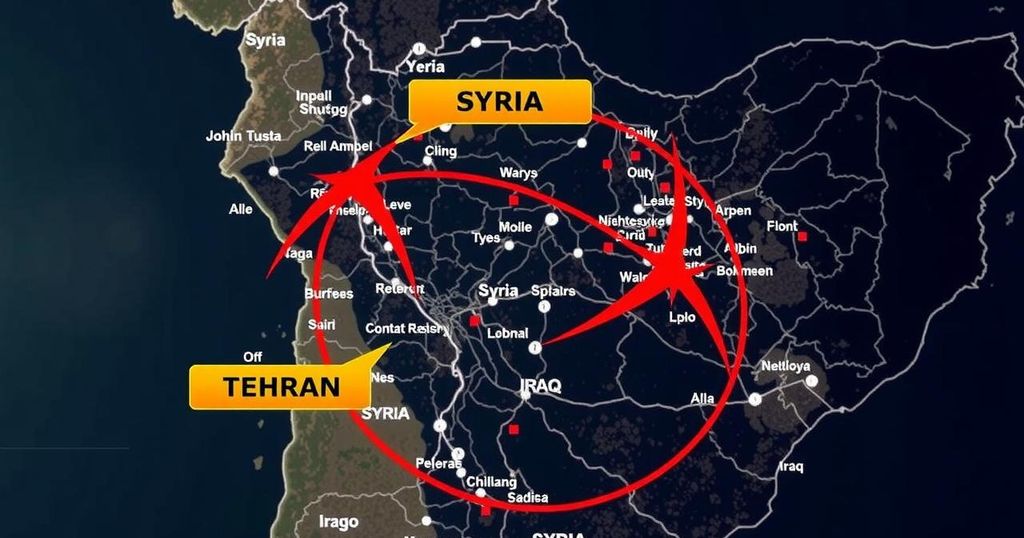In a significant escalation following Israeli airstrikes, Syria, Iraq, and Iran have closed their airspace to protect against potential threats. Israel’s military targeted multiple locations in Iran, prompting defensive responses and public declarations from Iranian officials about the limited impact of these strikes. The situation remains sensitive, with airspace closures in effect indefinitely as regional tensions mount.
In response to heightened Israeli airstrikes on Iranian territory, Syria, Iraq, and Iran have collectively decided to close their airspace to all flights. This unprecedented action aims to safeguard their airspace amid rising tensions, affecting not only commercial flights but also civilian and non-operational military aircraft until at least Saturday morning. Although Iran initially intended to reopen its airspace at 9 AM, it has since opted to extend this closure indefinitely. The Israeli military announced the completion of its airstrikes on Saturday morning, targeting various missile production facilities and aerial defense structures across Iran. Reports from Israel’s public broadcasting service indicate that three successive waves of strikes were executed during this operation. In contrast, Iranian air defense forces reported that Israel had attacked military sites in Tehran, Khuzestan, and Ilam provinces, inflicting “limited damage” to certain installations. The Air Defense Forces of the Islamic Republic stated, “Despite previous warnings by the Islamic Republic of Iran to the criminal and illegitimate Zionist regime to avoid any adventurous actions, this fake regime attacked parts of military installations in Tehran, Khuzestan and Ilam provinces this morning.” They further noted that Iran’s integrated air defense systems had successfully intercepted the attacks, leading to only marginal damage, and investigations into the incident’s scope are ongoing. In light of these developments, the Iranian government has implored its citizens to remain calm and united while urging them to stay informed through official news sources, cautioning against misinformation spread by foreign adversaries.
The closure of airspaces in Syria, Iraq, and Iran following Israeli airstrikes signifies an escalation in regional tensions that could potentially lead to broader conflict. The Israeli military’s operations purportedly target strategic military installations within Iran amidst ongoing hostilities. The Israeli strikes illustrate a dangerous shift in military dynamics in the Middle East, with far-reaching implications for regional stability and international peace. The airspace closures aim to enhance national security and mitigate risks associated with aerial assaults. Understanding the motivations behind the Israeli strikes and the corresponding defensive measures adopted by Iran is crucial in framing this evolving geopolitical scenario.
The recent closure of airspaces over Syria, Iraq, and Iran in response to Israeli military actions underscores the escalating tensions within the region. As both sides navigate this precarious landscape, maintaining open lines of communication and relying on formal sources of information is vital for civilian safety. The Iranian government’s call for unity among its citizens reflects a desire to maintain internal solidarity amid external pressures.
Original Source: freepresskashmir.news







